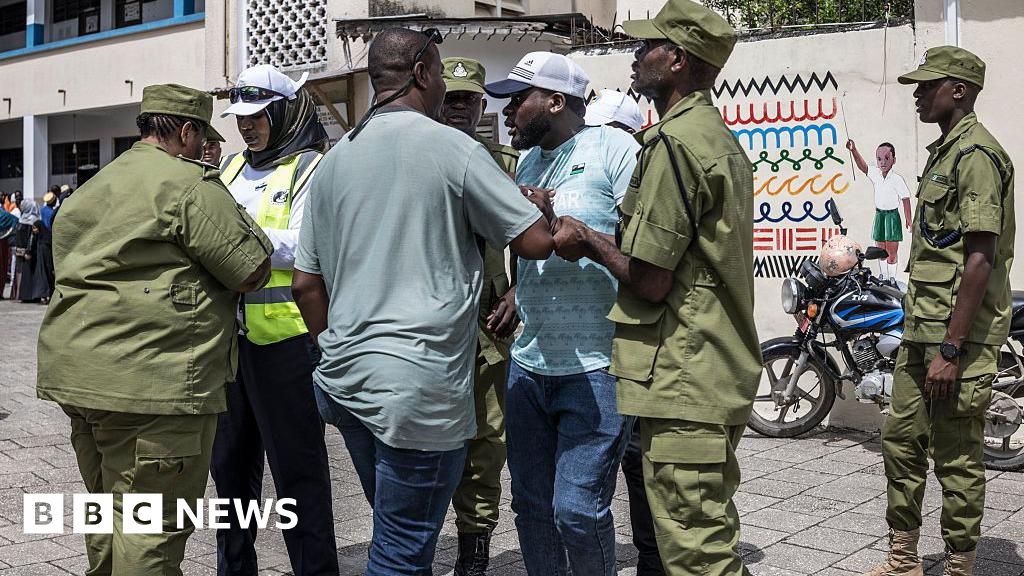Kenya demands safety for its citizens after Tanzania's post-poll crackdown

Kenya Demands Safety Guarantees for Citizens in Tanzania Amid Post-Election Crackdown
Kenya has formally requested assurances from Tanzania regarding the safety and well-being of its citizens residing in the country, following reports of targeted harassment and violence in the wake of Tanzania's recent general election. The demand comes amid growing concerns over alleged human rights abuses and a crackdown on dissent following President Samia Suluhu Hassan's landslide victory, which has been criticised by some observers as falling short of democratic standards.
Kenya's Foreign Affairs Minister, Musalia Mudavadi, conveyed the Kenyan government's concerns to his Tanzanian counterpart, Mahmoud Thabit Kombo, emphasizing the "importance of safeguarding the rights, safety, and dignity" of Kenyans living and working in Tanzania. An estimated 250,000 Kenyans reside in Tanzania, engaging in various economic activities.
The Tanzanian government has faced increasing scrutiny over its handling of post-election protests, with reports of excessive force used by security forces to quell demonstrations. While the government downplays the scale of the violence, opposition groups and human rights organizations allege a significantly higher death toll than officially acknowledged.
Rising Concerns Over Targeted Violence
Several Kenyan families have reported instances of their relatives being killed, injured, or detained in Tanzania, allegedly by Tanzanian security officers. These reports have fuelled public anxiety in Kenya and prompted calls for the government to take more decisive action to protect its citizens abroad.
Hussein Khalid, a prominent Kenyan human rights activist, has accused Tanzanian authorities of using Kenyans as "scapegoats for the atrocities committed by police against Tanzanians." He told Kenya's Daily Nation newspaper that "Kenyans in Tanzania are not safe. They are being targeted and harassed."
One particularly distressing case involves John Ogutu, a Kenyan teacher in Dar es Salaam, who was reportedly shot dead by police. His family is struggling to locate his body for repatriation and burial.
Diplomatic Channels and Public Response
Minister Mudavadi stated that concerns would be "addressed through the established diplomatic and consular channels" and that "formal reports" had been submitted to Tanzanian authorities "for appropriate action." The Kenyan Ministry of Foreign Affairs has also requested relatives of Kenyans in distress in Tanzania to provide relevant information, acknowledging public concerns over the government's perceived slow response.
However, some critics argue that a more robust diplomatic intervention is needed to ensure the safety of Kenyans in Tanzania and to hold the Tanzanian government accountable for any human rights violations.
Context: Tanzania's Political Landscape and Election Criticism
President Samia Suluhu Hassan secured a resounding victory in the recent election, winning 98% of the vote. However, the election has been marred by controversy, with opposition figures either imprisoned or barred from running. Election observers have raised concerns about the fairness and transparency of the process.
Dr. Nicodemus Mjema, a political analyst at the University of Dar es Salaam, notes that "While President Samia initially signaled a move towards greater political openness after succeeding President Magufuli, recent events suggest a tightening of political space and a crackdown on dissent. The post-election violence, and the allegations of targeting foreigners, particularly Kenyans, are worrying signs."
He further adds, "Tanzania needs to address these concerns transparently to maintain its reputation as a stable and peaceful nation within the East African Community."
Historical and Regional Implications
Tanzania and Kenya, both members of the East African Community (EAC), have historically maintained close economic and diplomatic ties. However, periodic tensions have arisen, particularly concerning trade and the treatment of each other's citizens.
In May, diplomatic relations were strained following Tanzania's handling of Kenyans observing the treason trial of opposition leader Tundu Lissu. Several Kenyans were deported, and reports emerged of torture and mistreatment of Kenyan activists.
These incidents highlight the complexities of the relationship between the two countries and the need for continued dialogue and cooperation to address shared challenges and ensure the protection of human rights and the safety of citizens.
Looking Ahead
The Kenyan government is under pressure to ensure the safety and security of its citizens in Tanzania. The situation underscores the importance of upholding democratic principles and the rule of law in both countries. The international community will be closely watching how Tanzania responds to these concerns and whether it takes concrete steps to address allegations of human rights abuses and ensure the safety of all residents, including Kenyans.
Originally sourced from: BBC News Africa
